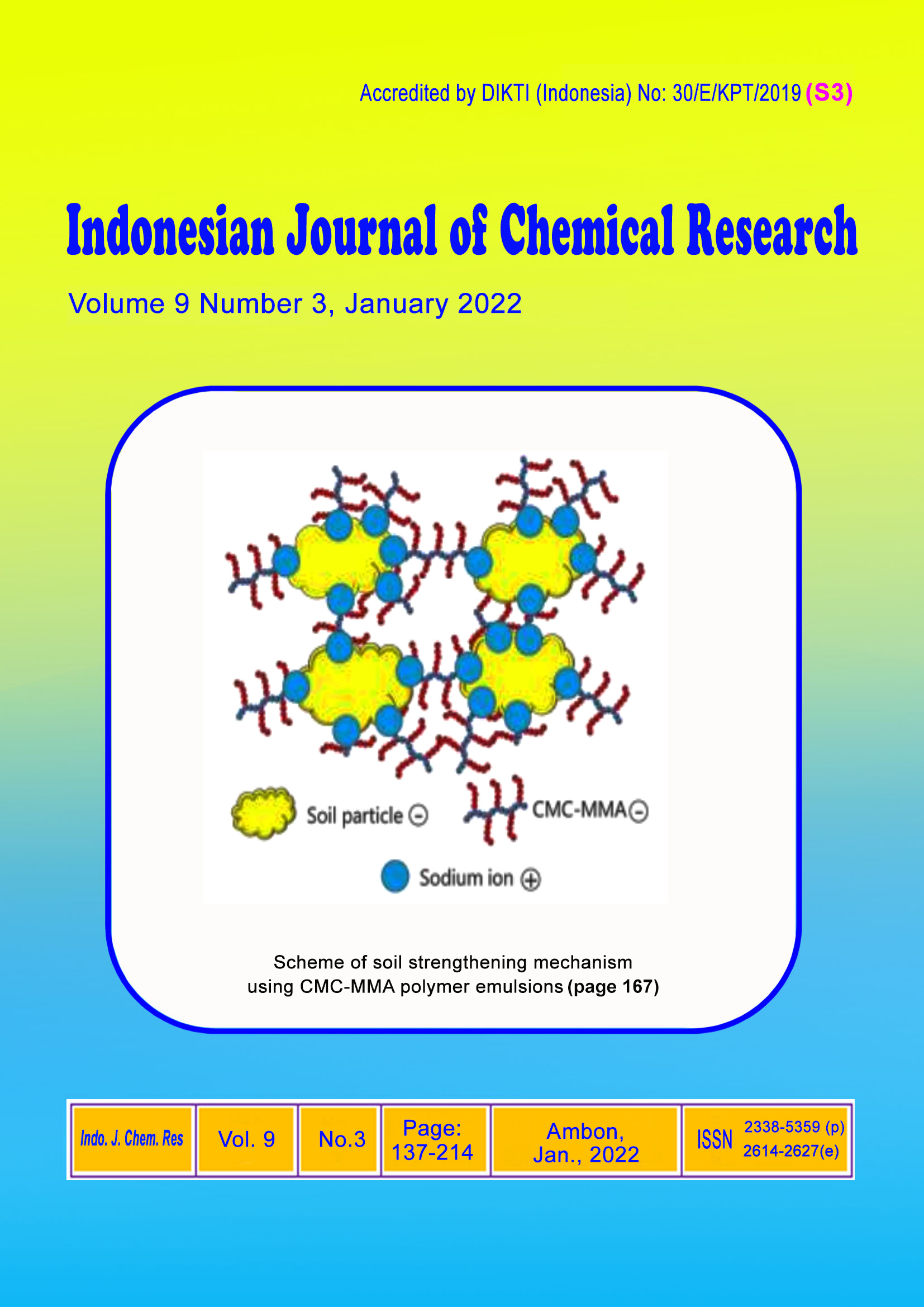Utilization of Aur-Aur Grass as A Natural Hand Sanitizer in Order To Prevent The Spread of The Covid-19 Virus
Abstract
Indonesia is currently amid a Covid-19 virus pandemic. One of the efforts that can be done to prevent the spread of the Covid-19 virus is to wash your hands with soap, or you can use a hand sanitizer. However, hand sanitizers are mostly made of chemicals, many people feel side effects including dry skin, dermatitis, and irritation. This research aims to make hand sanitizer products made from natural ingredients, namely from extracts of aur-aur grass (Commelina diffusa Burm F.). Phytochemical tests showed that aur-aur grass contained 5,188.73 ppm flavonoid compounds, 8,673.60 ppm total phenol (tannin), and 466.30 ppm alkaloids. The manufacture of hand sanitizers was carried out in four variations with each sample having aur-aur extract levels of 5%, 10%, 15%, and 20%. Of the existing hand sanitizer products, all of them have a pH of ±5 and get good responses from satisfaction values above 80%. Hand sanitizer products also can inhibit bacterial growth. The increase in extract levels in the hand sanitizer is directly proportional to the ability to inhibit bacteria, as shown by sample D which has an average inhibition zone of 9.77 mm.
Downloads
Copyright (c) 2022 Adilla Lina Putri Amutya, Alfian Zilham Rifa'i, Yogi Prasetiyo, Arum Sari, Lestari Hetalesi Saputri

This work is licensed under a Creative Commons Attribution-NonCommercial-NoDerivatives 4.0 International License.
Authors who publish with this journal agree to the following terms:
- Copyright on any article is retained by the author(s).
- The author grants the journal, the right of first publication with the work simultaneously licensed under a Creative Commons Attribution License that allows others to share the work with an acknowledgment of the work’s authorship and initial publication in this journal.
- Authors are able to enter into separate, additional contractual arrangements for the non-exclusive distribution of the journal’s published version of the work (e.g., post it to an institutional repository or publish it in a book), with an acknowledgment of its initial publication in this journal.
- Authors are permitted and encouraged to post their work online (e.g., in institutional repositories or on their website) prior to and during the submission process, as it can lead to productive exchanges, as well as earlier and greater citation of published work.
- The article and any associated published material is distributed under the Creative Commons Attribution-NonCommercial-NoDerivatives 4.0 International License.






_copy1.png)










